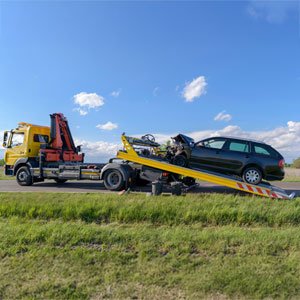Release of Employee Also Released Employer
Car AccidentsIn the case of Patrick Campbell v. Harper’s Air Inc., Case Number 3D21-0750 (Fla. 3d DCA January 19, 2022), Florida’s Third DCA held that a release of the driver that includes a release for “employers” also releases the employer at the time of the accident even though the driver was not employed at the time of the release.
Facts
This case involves a 2014 accident where an air conditioning employee was involved in a work truck accident with a third party (Campbell). The plaintiff (Campbell) filed suit against the driver in 2018 and settled.
The settlement agreement stated the following:
[T]he undersigned Releasor hereby releases and forever discharges ___________________ [driver], his heirs, executors, administrators, agents, assigned, employers, ,employees, firms and corporations (hereinafter all referred to as ‘Releasees’) liable or who might be claimed to be liable, none of whom admit any liability to the undersigned by all expressly deny any liability, from any and all claims, demands, damages, actions, causes of action or suits of any kind or nature whatsoever resulting from and/or arising out of all bodily injury, known or unknown, which has resulted or may in the future develop from an accident which occurred on or about the _____________ 2025, at or near the intersection of __________________ [location].
That settlement resulted in dismissal of the first lawsuit as would be expected. Thereafter, the plaintiff filed a second lawsuit against Harper Air based on the same accident. Harper Air was able to get the judge to enter summary judgment on the issue that the release of the driver barred the action against Harper Air. This appeal ensued.
We don’t have all of the facts to know why the plaintiff filed two separate lawsuits and why Harper Air was not specifically included in the release of the driver. However, generally speaking a release of one defendant in a lawsuit does not release other defendants who may be liable for the same cause of action. The release language including the “employer” modifies that general rule. We have to assume that the Third DCA felt that if the plaintiff had some reason not to settle with Harper Air, then Harper Air would have been specifically excluded in the release by appropriate language doing so.
For instance, a plaintiff may have some reason to settle with the employer but not with a driver (i.e. the driver was intoxicated). We simply don’t know without all of the circumstances involved. Notwithstanding, the wisdom to be gleaned from this case is that release language is important in a personal injury case. When you release someone for a tort, the release is a contract and the terms of the contract should be clearly stated therein.
Argument on Appeal
The plaintiff’s argument on appeal was that the driver’s employment with Harper Air ended before the date of the release and, therefore, Harper Air could not benefit from the release as the “employer.”
The Third DCA cited University of Miami v. Francois, 76 So. 3d 360, 366 (Fla. 3d DCA 2011)(holding that where no ambiguity exists, a court may not consider extrinsic evidence to determine the intent of the parties) and held that there was no ambiguity affirming judgment in favor of Harper Air.
Car Accident Lawyer in Lakeland, FL
Dealing with an insurance company after an accident can be a tricky thing. At Russo Law, we recommend having counsel to help you make the best decisions possible with your case. Having a car accident lawyer means that you have someone to guide you on settling your claims with the responsible parties and your medical providers. We offer a free consultation to figure out what we can do to help and, if we can help, then we accept cases on a contingency basis (no fees or costs unless you win).


